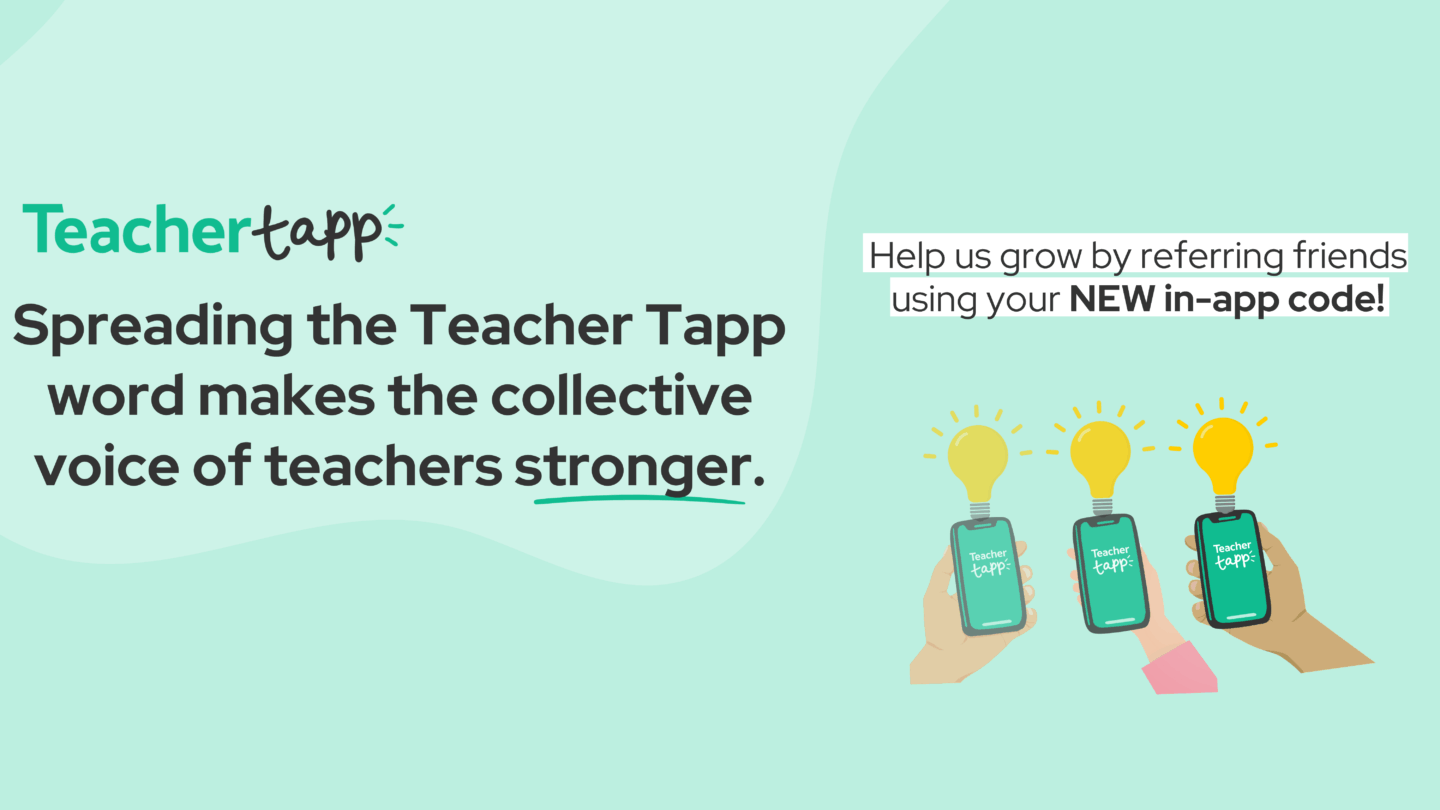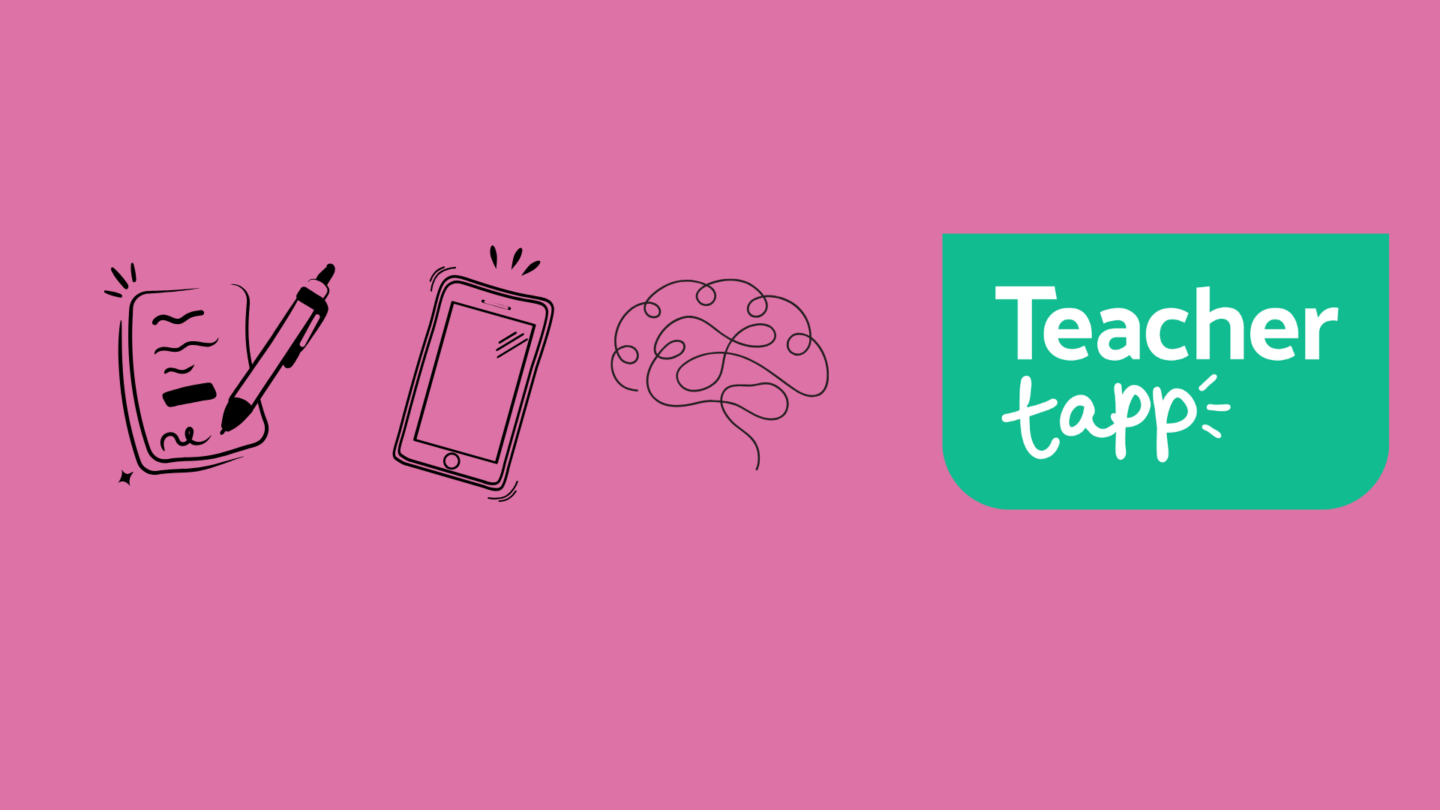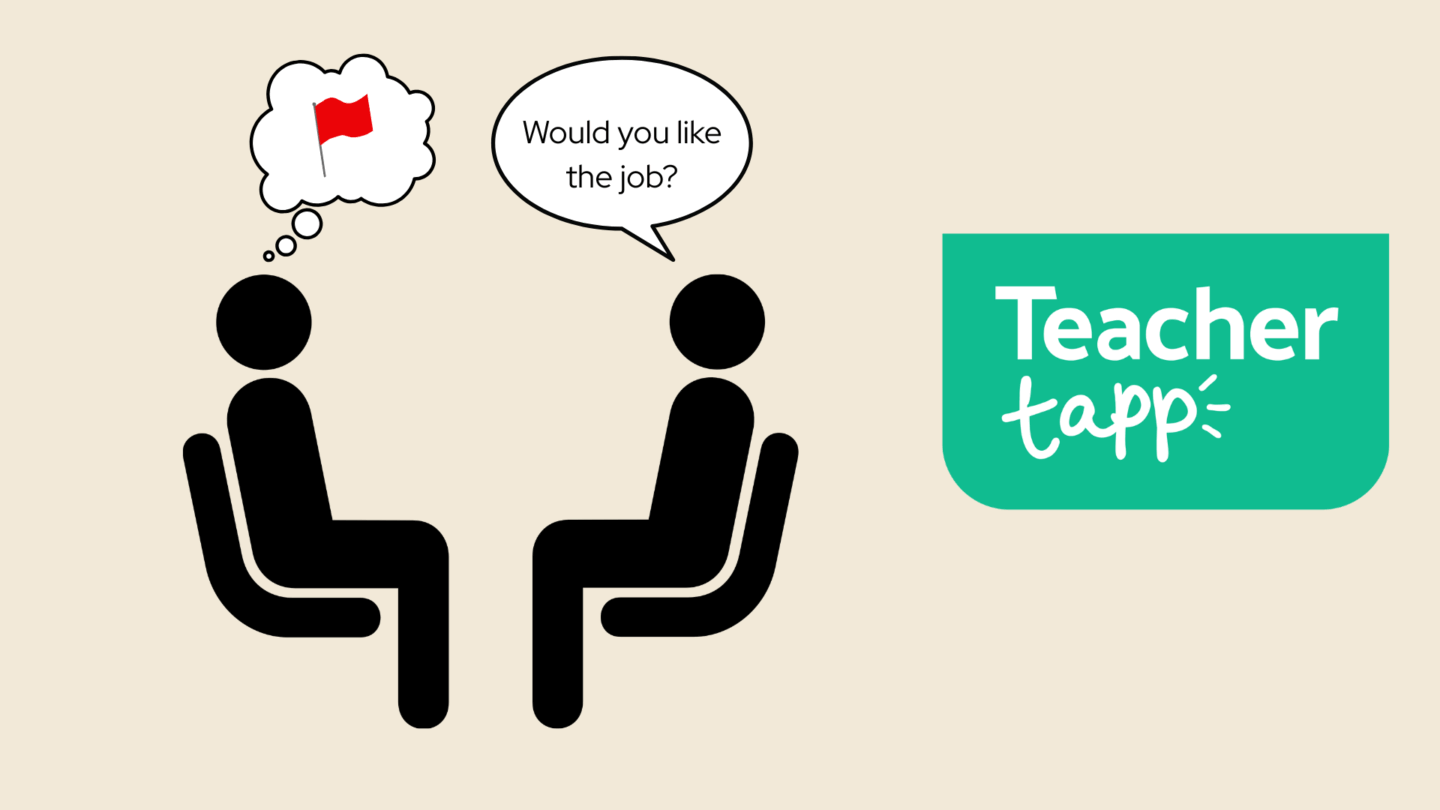Hello teacher tappsters!
Our big THANK YOU continues with golden tickets shooting off all over the place – not sure if you’ve had one yet? Check your app to find out how many you’ve got…and how many to go until you’re awarded another! 🥳
But what are the tickets for, I hear you ask! Every ticket is a shot at the prize draw for £1,000 🤑 . All you have to do is answer the questions on the app as normal and you’re automatically entered. Watch out for the winning tapper announced on March 1.
Teachers and social media use
You might have seen children and mobile phones making headlines this week – but what about teachers and social media?
We’ve been asking you about how your school policies your online activity for a few years now, and it’s interesting to see how things have (or rather haven’t…) changed 🤔.
🚫 First off – we asked how many of you are in schools where there is a social media policy for teachers? In 2021, 46% of you told us that your school has a social media policy limiting what you can say online.
Yet this week, that number has dropped to 32%.
But how does that policy (or lack of policy) change the number of teachers landing themselves in hot water with what they do post online?
In 2021, you told us that less than 1% of you had been officially disciplined, 4% told off, and 6% questioned over your social media postings .
But despite the drop in policies, these figures have stayed pretty much the same as previous years.
What does this tell us about teachers and their social media monitoring?
This tells us that there are a persistent number of you (nearly one in ten!) reporting that what you post on social media is causing issues for you at work.
Would national guidelines on what is and isn’t acceptable make things easier?
The proposal of government guidelines splits opinions.
Overall, we can see similar numbers for and against – and this hasn’t changed much from when we asked you in 2021:
However, when it comes to your level of responsibility, it’s clear that a set of rules put in place by the government is more favoured by those in schools who would have to enforce it:
Teacher-less classes
Last week we asked you to imagine a world without teachers 😳
We put to you the idea that with access to quality resources, students can progress equally well in your subject without a teacher.
No surprise – the majority of you said you disagreed…but who was doing the most disagreeing?
Zut alors! Coming out top we see MFL teachers 🇫🇷 🇩🇪 🇪🇸 . This was the subject with the fewest number of teacher tappers strongly agreeing, and the most tappers strongly disagreeing.
The eagle eyed among you might have already spotted the connection between this question and last week’s question on subject knowledge in your departments. Clearly language specialists take great pride in their expertise.
Our primary teacher tappers, where learners struggle to work independently, saw low numbers agreeing, and a significant chunk disagreeing.
The split in AP and Special School teachers, where there were high numbers strongly disagreeing AND agreeing might seem confusing, but this is likely explained by the diverse mix of students in these settings.
Flexible PPAs
Planning and preparation time is something all teachers are entitled to – but where you do it is up to your school.
Some teachers find a quiet space in school to do their PPA (not always easy!) and others are allowed to leave the school site and complete it at home.
According to the Department of Education, they’re encouraging schools to be more flexible with home working – but what is the reality?
⬇️ You told us that fewer of you are allowed to do your PPA at home when compared to 2021. In fact – from looking at the numbers, we can see stagnation since February 2022.
When we break this down into primary and secondary, we can see that the flexibility is actually mostly being given to primary school teachers.
From looking on X, it seems that this is largely due to the timetabling trouble in secondary schools where PPA can fall in the middle of the day. Unless you’re living on site, you’ve got no chance to make use of the opportunity to go home.
Does flexibility change as responsibility grows? Sort of.
⬆️ You told us senior leaders are more likely than classroom teachers to be allowed to do their PPA at home, but middle leaders are less likely to be allowed.
One reason for this difference could be that you’re far less likely to have middle leaders in primary schools – and it’s primaries where the flexible PPA seems to be more popular. But perhaps there is another reason! Let us know on the app or on socials 📣.
Love in the staffroom
Why do we always think of teachers partnering up with other teachers?
‘You get the holidays together!’ is the reply you might normally hear – but actually meeting your partner at work is the most common way to meet your partner (according to yougov – you can read more here) so perhaps it’s just the same in any industry.
Whatever the reason, you lovely teacher tappers continue to find romance over your marking, with nearly one in five of you saying your partner is a teacher 😍.
Time to leave
Every year, thousands of teachers change schools, often for promotion, location, or just a change.
For many, it’s a sad goodbye – however, this isn’t true for all of you:
- ► More than one in ten of you told us you’ve left a school because of bullying at work.
- ► 29% of you left because of a poor relationship with your manager – and this is a seven percentage point rise on last year.
- ► Unethical leadership is also pushing people to leave a school, with one in five giving it as a reason why you decided to make a change.
Ups and Downs
On the rise 📈
Performance management
We asked if you valued your school’s performance management procedures, and the number of you tapping ‘no’ has gone up four percentage points to 38% since 2020.
Heading down 📉
Long covid sickness
The number of you telling us that you know a teacher who is currently off work with long covid has gone down since 2022 by eighteen percentage points to 10%.
Daily Reads
Our most read daily read this week was Alex Quigley’s vocabulary blog: how to teach vocabulary
If you would like to read the rest you can find them here 👇





